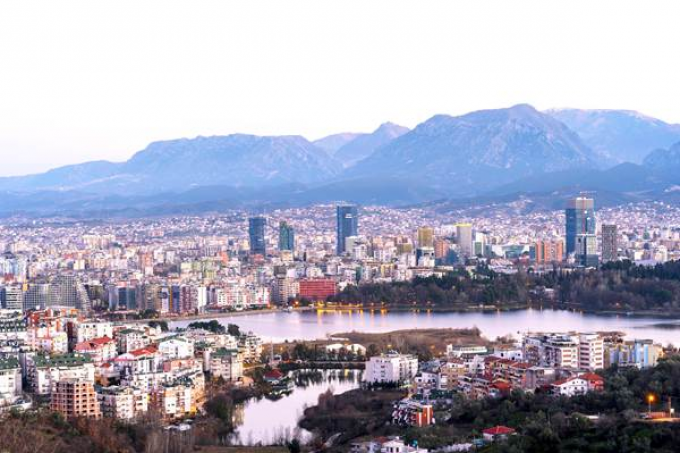Thomas Niederer Gebrüder Weiss's new land transport head in Switzerland
German road transport and logistics firm Gebrüder Weiss has named Thomas Niederer (above, right) as ...
TFII: SOLID AS USUALMAERSK: WEAKENINGF: FALLING OFF A CLIFFAAPL: 'BOTTLENECK IN MAINLAND CHINA'AAPL: CHINA TRENDSDHL: GROWTH CAPEXR: ANOTHER SOLID DELIVERYMFT: HERE COMES THE FALLDSV: LOOK AT SCHENKER PERFORMANCEUPS: A WAVE OF DOWNGRADES DSV: BARGAIN BINKNX: EARNINGS OUTODFL: RISING AND FALLING AND THEN RISING
TFII: SOLID AS USUALMAERSK: WEAKENINGF: FALLING OFF A CLIFFAAPL: 'BOTTLENECK IN MAINLAND CHINA'AAPL: CHINA TRENDSDHL: GROWTH CAPEXR: ANOTHER SOLID DELIVERYMFT: HERE COMES THE FALLDSV: LOOK AT SCHENKER PERFORMANCEUPS: A WAVE OF DOWNGRADES DSV: BARGAIN BINKNX: EARNINGS OUTODFL: RISING AND FALLING AND THEN RISING

PRESS RELEASE
Tirana / Lauterach, February 13, 2023. Gebrüder Weiss opened a new location in the Albanian capital of Tirana on February 6, thereby closing the geographical gap between Montenegro and North Macedonia and enabling the international transport and logistics company to expand its transport connections in South-Eastern Europe. Gebrüder Weiss locations in the West Balkans include Albania, Bosnia-Herzegovina, Montenegro, North Macedonia and Serbia.
“There has been a sharp rise in transports to and from Albania over the past decade, with the majority of imported goods coming from the European Union. It is our aim with the location in Tirana, the country’s most important transport hub, to offer customers from industry and trade in the EU direct connections to and from Albania,” says Thomas Moser, Director and Regional Manager Black Sea/CIS at Gebrüder Weiss.
The conditions are promising: The logistics service provider has a well-developed land transport network in neighboring countries and in Central and Eastern Europe. “The first step will involve us expanding the existing groupage freight line between North Macedonia (Skopje) and Albania in both directions. There are also plans to establish new connections to Albania’s main trading partner, Italy,” says Dorina Islami, Country Manager of Albania at Gebrüder Weiss.
Albania’s economic outlook has brightened again following the coronavirus pandemic, with an expected growth of around three percent for 2023. Imports such as food, machinery, chemicals, and textiles make up the majority of the country’s balance of trade. Exports to the European Union, with a free trade agreement in place since 2009, include clothing and food, iron and steel, and other raw and construction materials.
Comment on this article